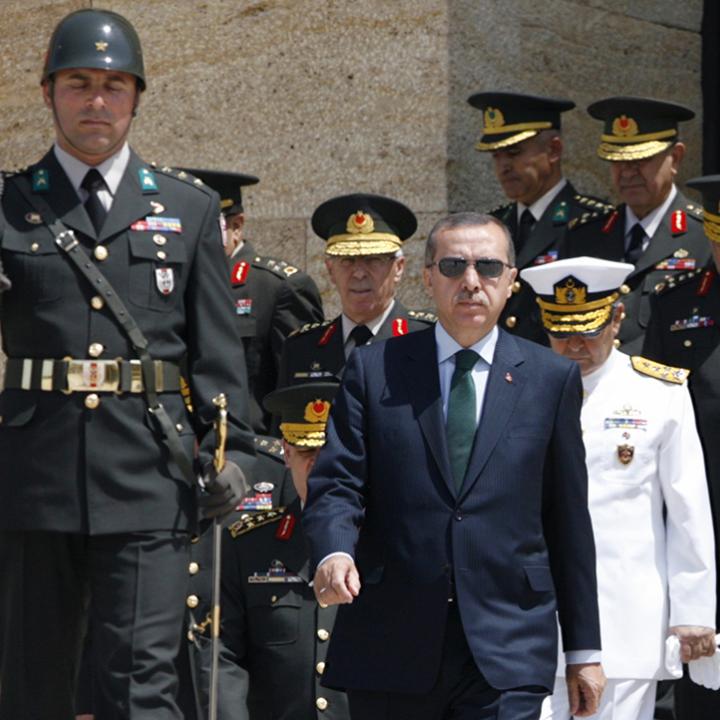
- Policy Analysis
- Articles & Op-Eds
Political Divide Deepening in Turkey as Erdogan Assumes More Power

With the president aiming to force a dominant-party system on a split electorate, Turkish society may be headed for a long-term political crisis.
Following his electoral victory on June 24, President Erdogan assumed new and sweeping executive powers on July 9. He is now the head of state, government, the army, the ruling Justice and Development Party (AKP) and the national police force.
The big picture: With the prerogative to appoint a majority of the judges to the Turkish high courts and his control of the country’s legislature, Erdogan has become the most unassailable Turkish leader since Mustafa Kemal Ataturk established modern Turkey as a secular republic in 1923.
The background: Having grown up in secular Turkey facing social exclusion because of his piety and conservative views, Erdogan is motivated by deep-rooted animosity towards Ataturk’s legacy. Since coming to power, he has given conservative Islam a dominant role in society, education and politics, without formally lifting the secular language of the constitution.
In keeping with Erdogan’s vision, Turkey’s Council of National Education issued a policy recommendation in 2014 that courses on Islam be taught to all students as young as six. Such policies reflect the revolutionary instincts of the AKP in the mold of a majoritarian-style party. The upshot is that Turkey now discriminates against citizens who do not affiliate themselves with Erdogan’s conservative Islam.
Yes, but: Turkey differs from other one-party-dominant countries, as the AKP vote has never surpassed 50%. Erdogan barely won the June 24 elections, with only 52% of the vote, and owed his victory to support from the allied Nationalist Action Party. Nearly half of the country vehemently opposes him.
The bottom line: Despite its limited electoral dominance, the AKP operates as if it has overwhelming support, and eschews consensus-building. As Erdogan continues to establish a dominant-party system over a split electorate, Turkish society may be heading for a long-term political crisis.
Soner Cagaptay is the Beyer Family Fellow and director of the Turkish Research Program at The Washington Institute, and author of The New Sultan: Erdogan and the Crisis of Modern Turkey. This item was originally published on the Axios website.
Axios



